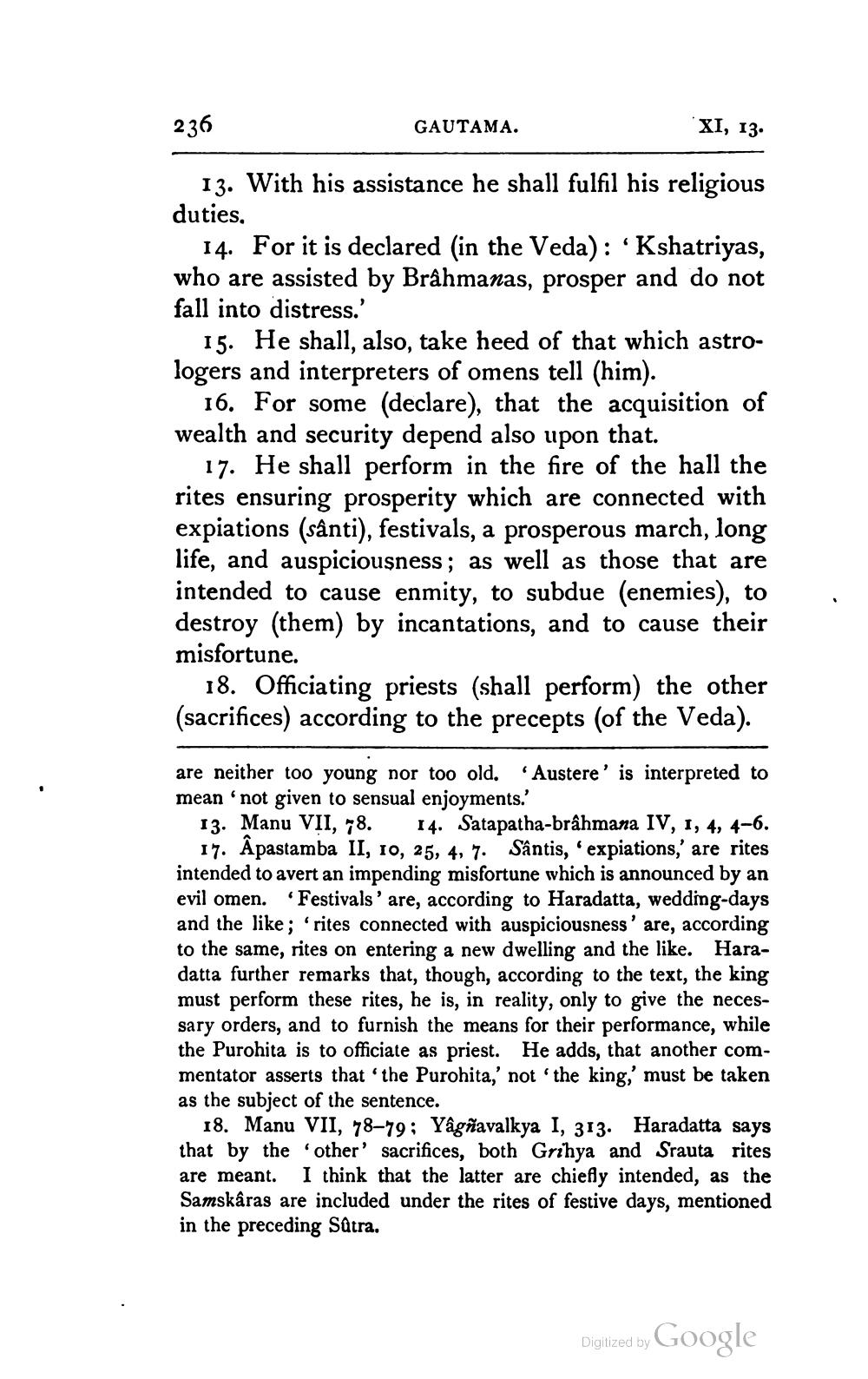________________
236
GAUTAMA.
XI, 13.
13. With his assistance he shall fulfil his religious duties,
14. For it is declared (in the Veda): 'Kshatriyas, who are assisted by Brâhmanas, prosper and do not fall into distress.'
15. He shall, also, take heed of that which astrologers and interpreters of omens tell (him).
16. For some (declare), that the acquisition of wealth and security depend also upon that.
17. He shall perform in the fire of the hall the rites ensuring prosperity which are connected with expiations (sânti), festivals, a prosperous march, long life, and auspiciousness; as well as those that are intended to cause enmity, to subdue (enemies), to destroy (them) by incantations, and to cause their misfortune.
18. Officiating priests (shall perform) the other (sacrifices) according to the precepts (of the Veda).
are neither too young nor too old. "Austere' is interpreted to mean not given to sensual enjoyments.
13. Manu VII, 78. 14. Satapatha-brâhmana IV, 1, 4, 4-6.
17. Âpastamba II, 10, 25, 4, 7. Sântis, expiations,' are rites intended to avert an impending misfortune which is announced by an evil omen. 'Festivals' are, according to Haradatta, wedding-days and the like; rites connected with auspiciousness' are, according to the same, rites on entering a new dwelling and the like. Haradatta further remarks that, though, according to the text, the king must perform these rites, he is, in reality, only to give the necessary orders, and to furnish the means for their performance, while the Purohita is to officiate as priest. He adds, that another commentator asserts that the Purohita,' not the king,' must be taken as the subject of the sentence.
18. Manu VII, 78-79; Yâgñavalkya I, 313. Haradatta says that by the 'other' sacrifices, both Grihya and Srauta rites are meant. I think that the latter are chiefly intended, as the Samskaras are included under the rites of festive days, mentioned in the preceding Sûtra.
Digized by Google




